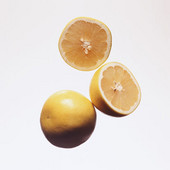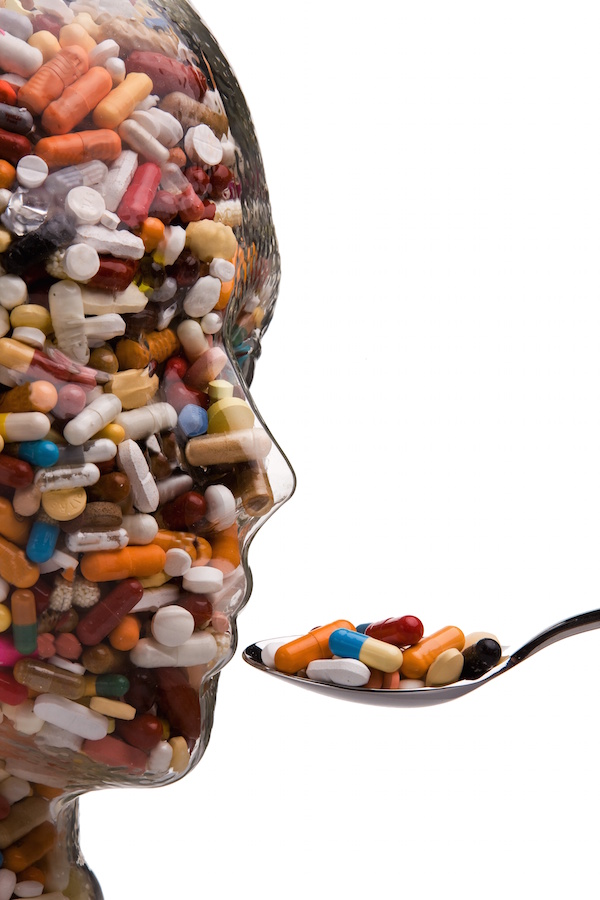
TUESDAY, Aug. 7 (HealthDay News) — In a small study of patients with incurable cancer, drinking 8 ounces of grapefruit juice a day boosted the effect of a drug they were given during the study.
Although some participants had a response, tumors did not disappear after using the drug, which is mostly used to treat conditions unrelated to cancer. The study’s main finding was that grapefruit juice might allow treatment using smaller drug dosages, therefore reducing side effects and perhaps costs.
Sirolimus (Rapamune) is an immunosuppressant and not approved as a cancer drug. Its primary use is to prevent rejection after kidney transplants. It is also used as a treatment for psoriasis, the researchers noted.
Some early studies suggest that sirolimus may have tumor-fighting effects. Derivatives of the drug are used in kidney cancer and breast cancer.
The drug, however, has what is called poor bioavailability, which means the body can’t use it efficiently. Only about 14 percent of it gets absorbed, said lead researcher Dr. Ezra Cohen, assistant professor of medicine at the University of Chicago Medical Center.
“We thought if we could manipulate it we could increase the availability, make it easier to take and make it more effective,” Cohen said.
With grapefruit juice or another drug, the researchers were able to increase the effectiveness and also lower the dose of sirolimus, he said.
“This has a wider application beyond sirolimus,” Cohen said. “This is a proof of principle that grapefruit juice could be used in this way.”
Cohen said this same tactic will work with other cancer drugs and could dramatically reduce costs.
“Cancer drugs that are being introduced will cost anywhere from $3,000 to $10,000 per month,” he said. “Here’s a mechanism that might allow us to significantly reduce the cost.”
For example, sirolimus costs about $1,000 a month. If it could be combined with drinking grapefruit juice, the cost would drop to about $300 a month, Cohen said. A drug that costs $5,000 a month might drop to $1,000, he added.
Using lower doses of drugs also could reduce side effects, he said.
People, however, shouldn’t experiment with grapefruit juice to increase the potency of their drugs, Cohen cautioned. The effect will vary with each drug and with the type of juice used. This needs to be researched much more, he said.
The report was published Aug. 7 in the journal Clinical Cancer Research.
In the trial, funded by the U.S. National Institutes of Health, Cohen’s team enrolled nearly 150 patients with incurable cancer for which there was not effective treatment.
Some patients were given sirolimus alone, others were given sirolimus plus grapefruit juice and others were given the drug along with ketoconazole (Nizoral), which is used to treat fungal infections.
The most effective dose of sirolimus was about 90 milligrams a week, but at doses above 45 mg there were serious side effects, such as nausea and diarrhea. Patients taking the drug alone were switched to 45 mg, the researchers said.
When sirolimus was given with ketoconazole, patients needed only 16 mg of sirolimus a week to achieve a response to the drug, researchers found. Patients taking grapefruit juice needed 25 mg to 35 mg of sirolimus, the researchers noted.
Grapefruit juice increased sirolimus levels by 350 percent and ketoconazole increased the drug levels 500 percent, they added.
None of the patients had a complete response — that is, the drug didn’t get rid of the tumors. About 30 percent of patients, however, saw their condition stabilize for a time. In one patient who was taking grapefruit juice along with sirolimus, the tumor shrank — a response that lasted more than three years, the researchers said.
The advantage of grapefruit juice over ketoconazole is that it is not toxic and carries no risk of overdose, the researchers said. Grapefruit juice has its effect because it inhibits enzymes in the intestine that break down sirolimus, making more of the drug available to the body, according to the study.
Dr. Kirk Garratt, director of interventional cardiovascular research at Lenox Hill Hospital, in New York City, said that “oncologists are realizing that grapefruit juice can be used to advantage.”
The same effect is seen with cholesterol-lowering drugs called statins and patients are cautioned not to drink grapefruit juice when taking a statin, Garratt said.
Cohen noted that not all grapefruit juice is the same and some types don’t have enough of the active ingredient to have an effect on drugs.
Before this strategy could be used for a wide variety of patients, there needs to be a way to balance drug doses with grapefruit juice to ensure an optimal effect, he noted.
Another expert commented on the study.
“This is a phase 1 trial,” said Dr. Otis Brawley, chief medical officer at the American Cancer Society. “They are going to have to do a phase 2 study and show that this way of dosing is equivalent or better than our current approved ways of dosing.”
Brawley said this finding is very preliminary, but it’s worth pursuing as a way to save money and perhaps reduce side effects. A lot of work needs to be done, however, before this approach can be considered as a potential addition to therapy, he said.
More information
To learn more about drug interactions, visit the U.S. Food and Drug Administration.

